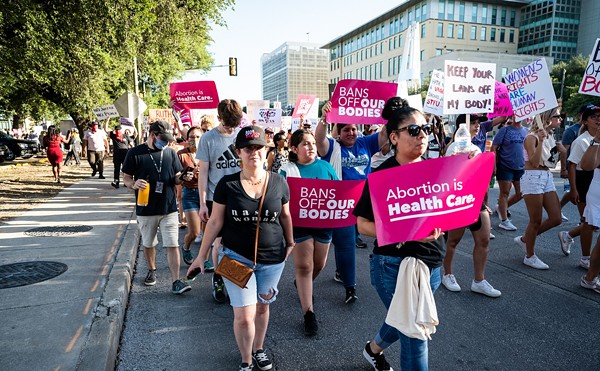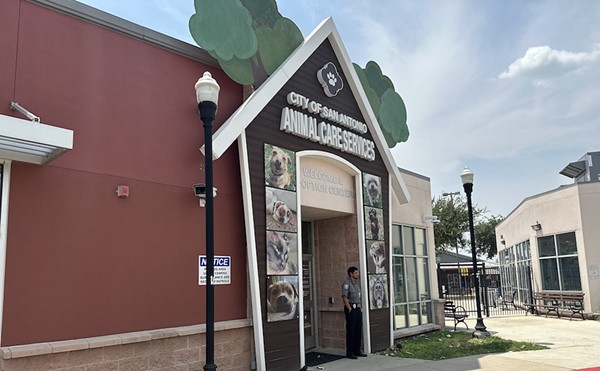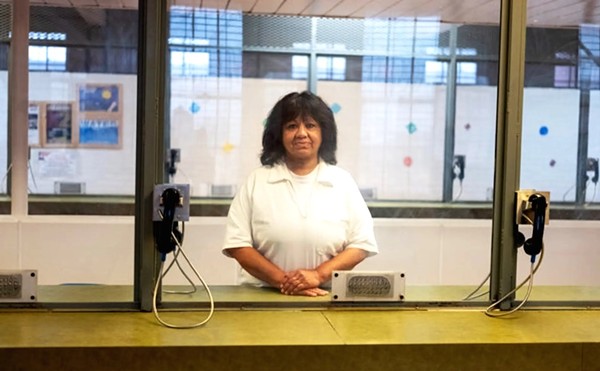Early voting starts next month in Bexar County for the 2010 primaries. The small number of people who actually participate will vote for a handful of candidates they know, and then face dozens of choices for lesser offices between candidates they have probably never heard of and almost certainly know nothing about. By the end of the general election, we will know who will be recording our deeds and assessing our property taxes. In this way, also, we will choose our judges — people who decide things like who goes to prison, who gets custody of your child, and whether you get to keep your home.
At the federal level, judges are nominated by the president and confirmed by the Senate. Likewise, judges are routinely appointed in foreign countries. As former Supreme Court justice Sandra Day O’Connor observed recently, “No other nation in the world `elects judges` because they realize you’re not going to get fair and impartial judges that way.” However, at the state level, including Texas, judges are often chosen in popular elections. Once seen as a progressive reform to bring more democracy and accountability to the bench, the election of judges has to be deemed a failed experiment.
Electing judges (and sheriffs and constables) made sense in an era when a town needed someone to keep order and picked a respected member of the community for the task. This situation basically still works in certain areas, but is a dangerous relic in a large city like San Antonio, where too often our judges do not reflect true community values because they are not the product of reasoned democratic decision-making but rather of personality- or machine-driven politics.
Political donations to candidates seeking judicial office are pervasive in Texas. In October 2008, Texans for Public Justice released a study in which they found that between January 2007 and June 2008, the three elections for seats on the state Supreme Court were heavily financed by individuals, corporations, and law firms with business before the Court. It concluded, “During this period, 4,295 different case filings were active before the Supreme Court. Forty percent of these cases were tainted by the fact that the three now-campaigning justices handling them received at least one contribution from a lawyer or litigant involved in that case. Despite differences between the top contributors to the Republican incumbents (led by corporate defense firms) and their Democratic challengers (featuring plaintiff attorneys), both sides took approximately two-thirds of their political funds from contributors with business before the court.”
I am always refreshed when I go to small towns and counties outside San Antonio, and see the earnestness, integrity, and fidelity to the law displayed by the judges — what I naïvely imagined to be the norm. For the most part, these justices of the peace are not lawyers, are paid little to nothing for their work, and have full-time jobs in teaching or other professions. Yet, they show a stronger dedication to fairness, justice, and due process than a typical judge in this city. I remember one case in which the judge emailed me a few days after a case had been settled because he wanted more information on an obscure point of law I had raised that he was not familiar with.
By contrast, there is one justice of the peace in San Antonio whose hearings resemble something like a lightning round in a game show — except instead of winning a trip to Hawaii, you lose your home. A typical hearing lasts about 30 seconds, so the first words out of your mouth better be good. And if your case involves complexity or nuance, well, those are the breaks. In one of my first cases as a new attorney in front of another justice of the peace, now elevated to the county court, she announced her ruling immediately after the plaintiff’s case. She forgot she was supposed to hear both sides of the argument! After I pointed this out, she gave us roughly a minute to explain that my client hadn’t paid her landlord for electricity because the landlord had cut off her electricity, and then issued the same ruling. To this day, I don’t know whether she didn’t hear my client, or just didn’t care.
It is possible, of course, for an elected judge to maintain a connection with the community and to take her job seriously. I was reminded of this when I was recently in front of Justice of the Peace Edmundo Zaragoza, who issued a split decision after considering both sides in a dispute over a car sale. More than anything, I enjoyed watching him go through his docket — giving everybody a chance to speak his or her mind, helping out as many people as he could, making thoughtful decisions after getting all the facts. I could see how he was respected by even those who did not get the result they wanted. I don’t think my client would have taken half a loaf after a full day of mediation, but she was happy to accept it that day because she sensed that the judge honestly heard her case and rendered a fair decision.
I suspect, more than any judicial or political philosophy, this is what Obama meant when he said he wanted a Supreme Court justice who had empathy. This quality seems especially important at the ground level. Supreme Court cases often deal with abstractions that seem disconnected from the actual parties to the case, but empathy is crucial in the day-to-day business of our judicial system, in which people are made homeless through eviction or foreclosure, lose their children in custody disputes, or are sent to prison or death. My experience since becoming a lawyer is that our justice system all too often fails, and it is this disconnect between the people making decisions and the people affected by the decisions that is to blame.
In theory, democracy is supposed to create this very connection. This is true for political offices, where voters can choose the candidate who reflects their political views, or in small towns, where the candidates are actually known by many voters. However, when the candidates are simply names on a ballot, the election will be determined more by money, organization, style, and attitude, than by any of the qualities we actually want in judges. Our antiquated system of choosing judges is a relic of a previous time, but its consequences today are all too real. •
Aaron Haas is a staff attorney with Texas RioGrande Legal Aid. His next column will appear in the January 20, 2010, issue of the Current.


















